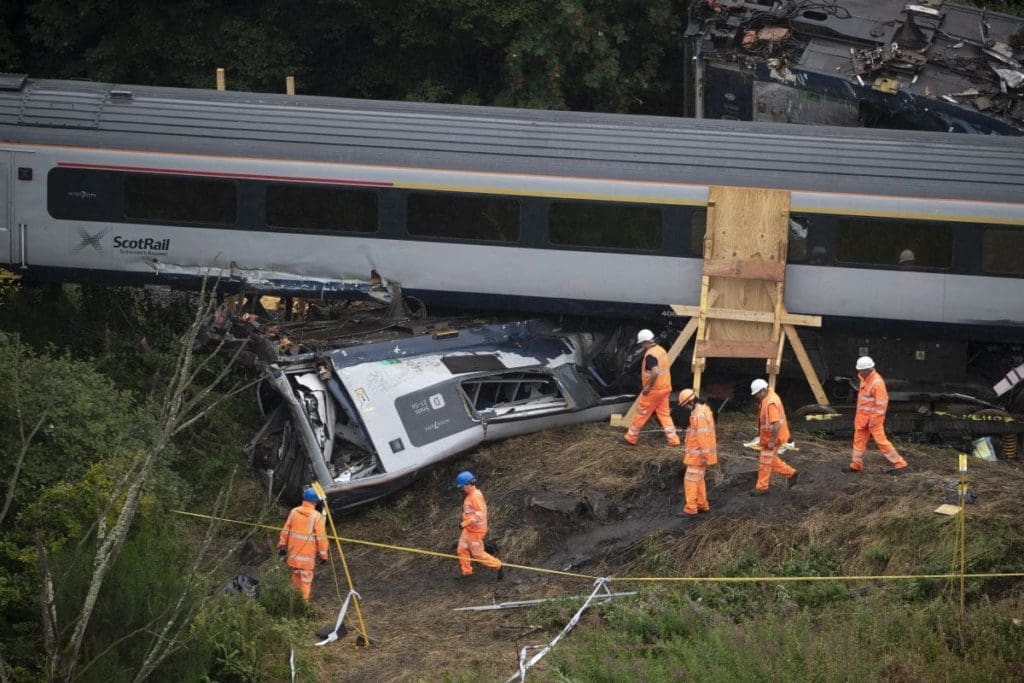RMT is calling for change as most of the safety recommendations made following a fatal train derailment “remain open“.

Credit: PA Wire
Saturday will mark the third anniversary of the Carmont rail incident, when a passenger train at Carmont, near Stonehaven in Aberdeenshire fatally derailed on August 12, 20220.
A report into the fatal derailment by the Rail Accident Investigation Branch (RAIB) made 20 recommendations more than a year ago, however, the Rail, Maritime and Transport union (RMT) has said most of the recommendations “remain open”.
Monthly Subscription: Enjoy more Railway Magazine reading each month with free delivery to you door, and access to over 100 years in the archive, all for just £5.35 per month.
Click here to subscribe & save
Speaking on the eve of the third anniversary of the incident, RMT has warned of an increasing risk of another tragedy.
RMT general secretary Mick Lynch said the union would pause to remember the deaths of the three who were killed, including RMT conductor member, Donald Dinnie.
“Our thoughts are with those who lost loved ones in the accident at Carmont and the six people on the train who were injured.
“If the Government and Network Rail does not give immediate priority to acting on these safety concerns and recommendations there is an increased risk of more accidents like Carmont putting rail workers and rail passengers at risk of harm.”
A Network Rail spokesperson said: “There were fundamental lessons learnt by Network Rail and the wider industry in the wake of the Carmont accident.
“As well as expressing our deep sorrow and regret at the loss of the lives of Christopher Stuchbury, Donald Dinnie and Brett McCullough, it’s important that we acknowledge it should not have taken this tragic accident to highlight those lessons.
“We are committed to ensuring Britain’s railway retains its standing as the safest major railway in Europe and we know there is no room for complacency as we work with our regulator, and industry partners, to maintain that record. “Our plan is to double our investment in climate resilience over Control Period 7 (2024-2029) to over £1.6bn.”




